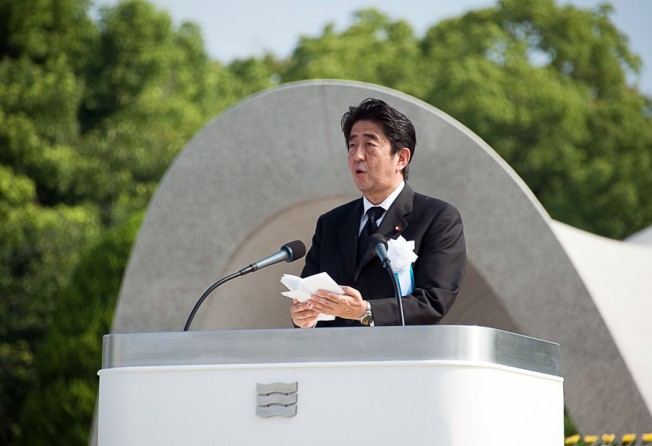Japan's defence policy plays no part in Abenomics
Tiago Mauricio says that despite defence budget increases, economy is prime minister's priority

While the economy is Prime Minister Shinzo Abe's top priority, his vision for Japan also rests upon a strong national defence.
As a result, recent increases in the defence budget - the first since 2003 - have led to speculation that a sustained economic recovery could drive further, more dramatic increases in spending. Nevertheless, there remains little evidence that this will actually take place.
For the current fiscal year, the Abe cabinet has approved a plan to boost defence spending by 0.8 per cent, or an extra 35.1 billion yen (HK$2.75 billion), to a total of 4.68 trillion yen. This increase was warmly received by most political constituencies as a necessary step to cope with rising tensions in Northeast Asia, particularly North Korea's nuclear and ballistic missile programmes, as well as China's maritime assertiveness.
In light of a decade-long stagnation in military expenditures, with increasing threats to Japan's security and mounting problems in its domestic military structure, the budget needed to be increased for existing policy objectives to be achieved and existing military capabilities to be sustained.
One should also remember that Japan has politically capped its defence budget at 1 per cent of gross domestic product.
While there has been much discussion of Japan's need to grow economically to compete with Chinese defence spending, the numbers tell a different story. For more than two decades, China has sustained double-digit budget increases, overtaking Japan as Asia's top spender in 2005. By contrast, Japan's recent budget increase was a modest one in what is clearly a downward trend in spending. Japan cannot afford to compete with Chinese spending, and Japanese leaders know it.
An argument for a connection between Abenomics and further increases in defence spending concerns Abe's attempts to expand defence co-operation while boosting Japan's economic base. Motivating these attempts to forge new defence ties is the desire to expand Japan's military-industrial base. Indeed, the influential Keidanren (Japan's business federation) has lobbied for further relaxation of the ban on arms exports.
But these debates over defence co-operation and weapons sales are not new. While Abe has taken a step forward by extending defence ties to France, the economic rationale behind this move is nothing new either.
Indeed, there seems to be little connection between Abenomics and Japan's defence policy. Abe thus appears to be one in a long line of reformists for whom political and security priorities have been secondary to economic ones.
Tiago Mauricio is a postgraduate student at Waseda University, Japan and a WSD-Handa non-resident fellow at the Pacific Forum, CSIS. Distributed by Pacific Forum CSIS. Copyright: Pacific News Service